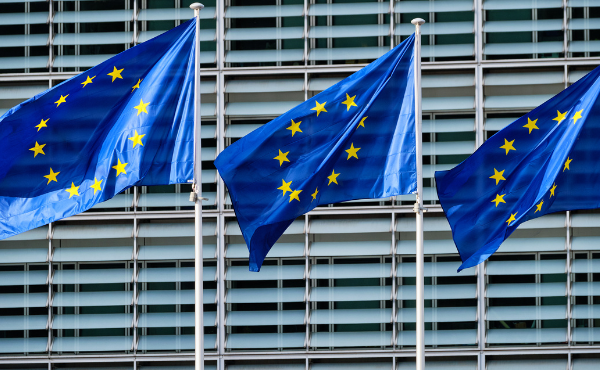
The ECGI blog is kindly supported by

Mandatory Corporate Sustainability Due Diligence in Europe: The Way Forward
There is urgency for the introduction of a harmonized mandatory corporate sustainability due diligence as proposed by the European Commission, but to ensure positive impact throughout the entire global value chain, including remediation of adverse impacts, some important improvements are required.
When asked whether the European Commission (EC)'s proposal for a Corporate Sustainability Due Diligence Directive (CSDDD) is desirable on balance, my answer would be a tentative yes. While the EC proposal falls short on a number of crucial aspects and appears to be a compromise not to tread on too many toes, overall it will be a step in the right direction to fulfill the urgent need – also recognized by large institutional investors – to increase the participation of corporate laggards that are not intrinsically motivated to meet important social and environmental standards desired by today's society. Limited liability has become a safe haven for companies to escape liability for damages that exceed normal business risks. If designed properly, the CSDDD can force companies to internalize the significant social costs they may impose on external stakeholders as side effects of their corporate structure and practices in global value chains (GVCs). In this post, I discuss three important shortcomings of the proposed CSDDD.
Flaw 1: unnecessary deviations from the UNGPs
The initiative is not sufficiently aligned with the existing international due diligence framework, including the UNGPs, the 2011 OECD guidelines, and the 2018 OECD guidance. One of these unnecessary deviations, as also outlined by SHIFT, is the introduction of the new concept of direct and indirect ‘established business relationships’. It can be inferred from the definitions under articles 3e and 3f that the EC uses a control perspective to limit the due diligence obligations in GVCs. This is materially different from existing voluntary standards and existing practices that focus on prioritization, including the severity and likelihood of adverse effects throughout the entire GVC. Such a risk-based approach makes for more effective due diligence duties, as risks further up the global value chain tend to be more severe. In addition, limiting the obligation to established business relationships only is likely to lead to perverse incentives and strategic behavior by companies in arranging their GVCs. The term ‘appropriate measures’ is another undesirable deviation calling for clarification at the European level to avoid legal uncertainty and offer coherent implementation.
Flaw 2: focus on contractual arrangements
The EC's proposal should encourage a proactive attitude from companies and directors, building on existing practices. Unfortunately, the articles 7-8 and 22 with their large emphasis on contractual guarantees seem to encourage box-ticking compliance. Moreover, article 22 – that contradicts UNGP 17’s ban of liability safe havens – states that a company shall not be liable for damages resulting from the activities of a partner with whom it has an indirect established business relationship when contractual guarantees are in place, unless it is unreasonable to expect that such contractual guarantees would be adequate. Contracts may form an important inroad for establishing control in GVCs, going beyond the perspective of privity to organize cooperation. Research and practice, however, show that there are different GVC governance types and particularly when a contextualized fit is lacking, relying on contracts and social audits can be ineffective to minimize social costs resulting from transactions and only shift responsibilities if, for example, there is no related change in prices and terms of delivery or other change in behavior by the company itself.
Flaw 3: existing legal barriers and lack of ‘smart mix’
The EC’s proposal rightly emphasizes civil liability complemented by administrative supervision for those situations in which courts can provide supplementary enforcement. However, like the existing French Duty of Vigilance, the proposal does not address the large legal hurdles including the burden of proof, high costs and asymmetric power relations faced by tort victims. Unless the EC is willing to address these issues, and it should, sound and harmonized administrative supervision unavoidably plays a key role in enforcing these corporate duties and granting victims access to fair remedies. Moreover, administrative supervision also covers situations in which no harm has occurred, in line with the preventative nature of due diligence. I thus welcome that the EC sets out complementary enforcement routes. However, unlike the initial proposal of the European Parliament, the EC’s proposal does not embrace the high need for a smart mix of harmonized administrative supervision and civil liability with also non-judicial grievance mechanisms and extra-judicial remedies. It is key to understand that due diligence is a dynamic and consultative process and legislation should explicitly recognize the importance of learning, information sharing and collective action through multi-stakeholder initiatives at the sector level, as also the evaluation of the Dutch multi-stakeholder initiative in the Garments and Textile sector highlights.
The board’s role
To conclude, the big elephant in the room: do we need additional directors’ duties? While outspoken opponents use the criticism of the EY report as a panacea to fight any proposal on sustainable corporate governance and directors’ duties, proponents argue that the board’s role to serve the best interests of the company should be clarified, preferably concretely formulated as “within an overarching purpose of sustainable value creation within planetary boundaries”. I agree with the proponents that a European Directive should recognize that the board’s role is key to fully integrate the dynamic due diligence process into the corporate strategy. It seems that the (high-level) oversight duty of proposed article 26 can fulfill this role without putting too large emphasis on the legal function. The proposed article 25, however, is vaguely formulated and clearly the product of balancing lobbying interests. Still, I tend to side with John Ruggie’s third argument that now the focus should be on optimizing the due diligence duties in the proposal to cover the entire GVC, getting rid of box-ticking and strategic incentives, removing legal hurdles for victims, and recognizing the proactive, consultative and dynamic nature of the due diligence process. Only then does my answer become a firm yes.
Anne Lafarre is Associate Professor in corporate law and corporate governance at Tilburg Law School.
This article is from the special issue of the ECGI Blog on the Corporate Sustainability Due Diligence (CSDD) Directive proposal, including articles from Erik Lidman and Alessio Pacces.
The ECGI does not, consistent with its constitutional purpose, have a view or opinion. If you wish to respond to this article, you can submit a blog article or 'letter to the editor' by clicking here.




